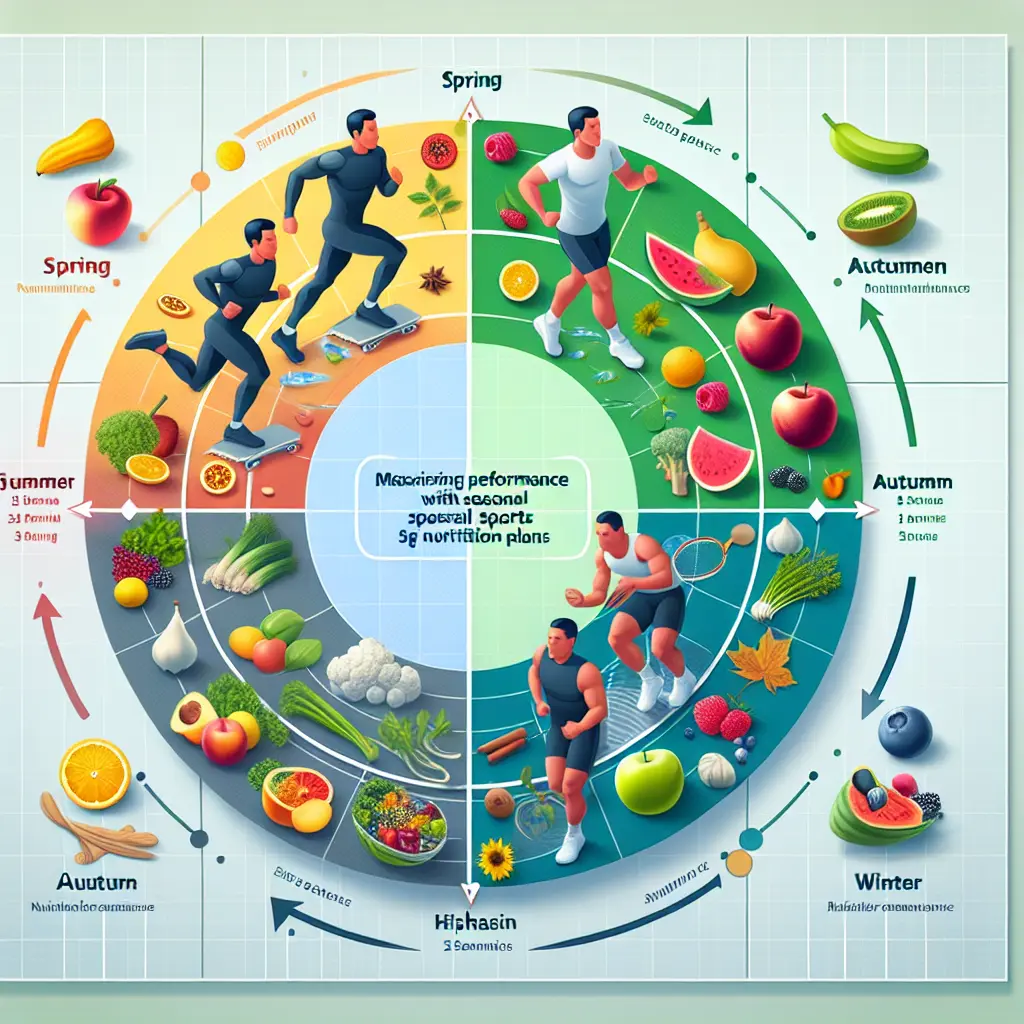
As an athlete, the quest for peak performance nutrition involves more than daily practice and strict routines; it encompasses a comprehensive approach to nutrition that shifts with the seasons. This is where the concept of seasonal sports nutrition comes into play, offering a strategic advantage in maximizing athletic performance.
Seasonal Sports Nutrition: Tailoring Intake to the Time of Year
Seasonal sports nutrition plans hinge on adjusting your diet to match the environmental and physiological demands placed on your body during different times of the year. In summer, for instance, athletes might focus on hydration and light, energy-boosting meals to combat heat and humidity—factors known to affect performance as significantly as high temperatures (Norton, 2024). Come winter, the emphasis shifts towards foods that support immune function and energy levels in colder, harsher conditions.
Understanding the Components of a Seasonal Diet for Sports
A seasonal diet for sports isn't just about responding to weather changes but also aligns with the availability of fresh, local produce which can enhance your nutrition profile significantly. For instance, during spring and summer, incorporating a variety of berries and leafy greens can provide antioxidants and necessary vitamins to help with recovery and energy levels. In contrast, root vegetables and squashes, abundant in autumn, offer complex carbohydrates that are ideal for energy storage and use during endurance sports.
Implementing Performance Nutrition Strategies
The integration of specific performance nutrition strategies is crucial. This includes timing nutrient intake to optimize absorption and effectiveness. Post-training, for instance, athletes should focus on protein for muscle repair and carbohydrates for replenishing energy stores, a principle supported by sports nutrition research (Smith et al., 2024). This tailored approach ensures that athletes are not just eating the right foods, but eating them at the right times.
Optimizing Your Sports Diet Seasonally
For real-world application of optimizing sports diets seasonally, consider how professional teams employ registered dietitians to develop sports nutrition plans that reflect both the seasonal and competitive environments. These plans often involve detailed meal planning that starts with understanding the macro- and micronutrient needs of athletes and how these needs fluctuate based on training intensity and environmental factors (Johnson, 2024).
Incorporating Global Sports Nutrition Tips
Athlete dietary planning also benefits from a global perspective. Looking at practices from around the world can offer new insights and techniques for enhancing performance. For instance, in regions like East Africa, diets rich in complex carbohydrates such as ugali (a maize flour porridge) fuel long-distance runners (Kiplagat, 2024).
Navigating Challenges: A Seasonal Nutrition Guide
However, transitioning to a seasonal nutrition guide isn't without its challenges. Availability of specific nutrients can fluctuate based on regional climate conditions and agricultural practices. Moreover, athletes traveling for competitions might find it difficult to adhere to their seasonal diets. Solutions include planning ahead with portable options and researching local food sources prior to travel.
Enhancement Through Technology and Recent Innovations
Technology also plays a pivotal role in sports performance enhancement through tailored sports nutrition. Recent innovations in mobile apps and nutritional analysis software allow athletes to track their diets in real-time and adjust their nutrient intake based on performance feedback (TechSports, 2024).
Conclusion: The Path Forward with Seasonal Sports Nutrition
To conclude, optimizing your sports diet seasonally isn’t just about following trends. It’s about making informed choices that align your body’s nutritional needs with environmental factors and training demands. This strategic approach ensures that athletes maintain peak physical condition year-round, prepared to tackle the demands of their sport no matter the season.
As we continue to explore and understand the dynamics of seasonal eating for athletes, the horizon looks promising for those looking to edge out their competition through scientifically-backed nutrition strategies.
Thank you for joining me on this detailed exploration of seasonal sports nutrition. Whether you're a seasoned athlete or a fitness enthusiast, integrating these insights into your routine will undoubtedly pave the way for enhanced performance and overall well-being.
Stay healthy, Avery Baldwin